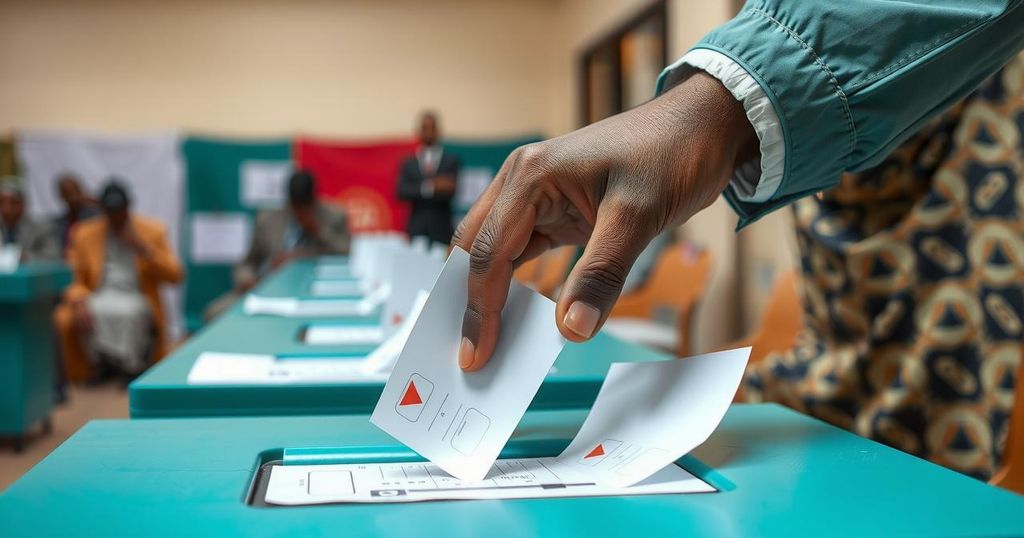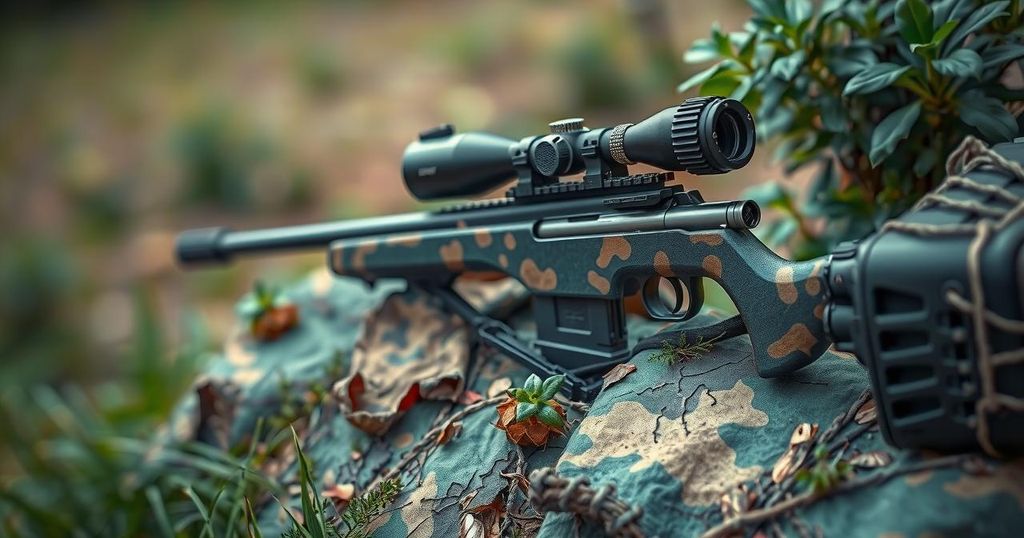Chad Holds Controversial Parliamentary Elections Amid Opposition Boycott
Chad’s parliamentary elections, the first in 13 years, are underway amid opposition boycotts, allegations of fraud, and low voter turnout. President Mahamat Idriss Deby Itno advocates for participation despite claims from opposition figures about pre-determined outcomes, presenting a backdrop of socio-economic challenges and recent geopolitical tensions. The elections are framed by the government as a crucial step towards democracy following military rule, amid calls for vigilance against electoral malpractice.
Voting is currently ongoing in Chad for its first parliamentary election in thirteen years, a significant event underscored by the government’s assertion that this process marks a pivotal transition from military rule. Citizens are tasked with electing representatives for a new parliament, provincial assemblies, and local councils amidst a politically charged atmosphere, which has witnessed a boycott call from opposition groups.
The opposition’s decision to abstain is largely driven by concerns regarding the integrity of the electoral process, with claims of pre-determined outcomes resonating among dissenters. This boycott has raised alarms about the potential for low voter turnout, particularly evident in the capital city of N’Djamena where initial polling station reports noted a lack of participation. Furthermore, election officials attributed the low turnout to adverse weather conditions rather than voter engagement.
Military-aligned candidates are positioned to benefit from the opposition’s absence, particularly given the backdrop of President Mahamat Idriss Deby Itno’s ascension to power following military intervention in 2021. The President himself has urged voters to participate actively in the election, framing the event as a historic opportunity for change. However, dissenting voices persist, including Succes Masra, leader of the Transformers party, who has alleged that the electoral results have already been predetermined.
Challenges facing voters include pressing socio-economic issues, as expressed by constituents like Patrice Lumumba Deoumoundou, who articulated a need for systemic change including job creation and equitable treatment. Meanwhile, logistical voting arrangements have seen military personnel and nomads casting their votes a day earlier, with the electoral agency citing unprecedented voter turnout among these groups.
As polling stations remain operational until the evening, both domestic and international observers are present to monitor the proceedings. Allegations of electoral malpractice have been reported, with claims of missing ballots causing concern among opposition parties. The elections unfold against the backdrop of ongoing security threats from Boko Haram and recent geopolitical tensions involving France and neighboring Sudan. Ultimately, the government has framed these elections as a critical step towards establishing a more democratic framework in Chad following decades of authoritarian rule.
Chad, a nation grappling with extreme poverty and political instability, is witnessing its first parliamentary elections in over a decade. The elections are emblematic of a broader move towards political reform following the military coup that brought President Mahamat Idriss Deby Itno to power in 2021. The political landscape is fraught with tensions as opposition parties call for boycotts, contesting the validity of the electoral process and alleging governmental manipulation. This situation poses intrinsic challenges, given Chad’s history of authoritarian governance and ongoing socio-economic struggles faced by its citizens.
In conclusion, the ongoing parliamentary elections in Chad represent a significant, yet contentious, effort to transition from military rule to a more democratic governance model. Despite government assertions of a fair electoral process, the landscape is marred by opposition boycotts, allegations of pre-determined outcomes, and socio-economic challenges faced by the populace. Observers and officials alike remain vigilant as the country navigates these pivotal elections amidst complex security and political dynamics.
Original Source: www.aljazeera.com




Post Comment